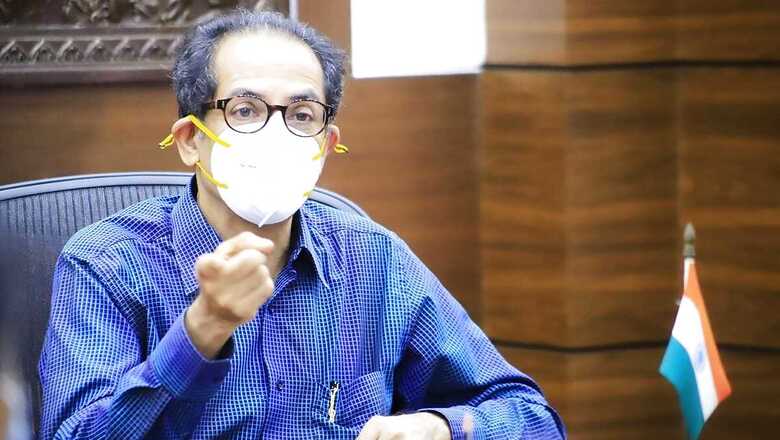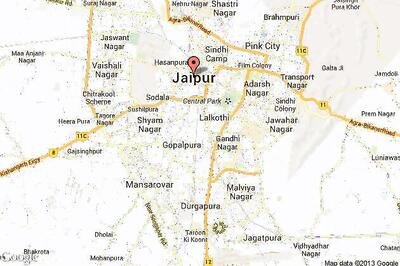
views
As the brutal outbreak of the coronavirus struck the world, the Maharashtra government — under the leadership of Chief Minister Uddhav Thackeray — conveyed a key message to every household in the state: the administration is standing with the common people and has put health and hygiene on its priority list. Despite the opposition’s politics over a public health emergency, Thackeray took a series of decisive steps, from strategic lockdowns to augmenting health infrastructure in order to deal with the crisis.
During the first wave of infections, the Dharavi model to combat the pandemic was appreciated globally. In the second wave, the Supreme Court, the Bombay High Court, the central government, social organisations, entrepreneurs, citizens and dignitaries praised Thackeray’s vision for Maharashtra, which has been hit hard by the outbreak.
Thackeray himself is working round the clock alongside doctors, health workers, front line staff and several of his cabinet colleagues, whose efforts are showing results. Maharashtra, which has recorded the highest infections and fatalities among all states since the beginning of the pandemic, is scripting a turnaround with a significant drop in active cases.
Mission Oxygen
The “Maharashtra Mission Oxygen” campaign has been launched to make the state self-sufficient in the production, storage and distribution of medical oxygen, a life-saving resource for critical COVID-19 patients. At present, Maharashtra needs 1,800 metric tonnes (MT) a day; of this, 1,295 metric tonnes are being produced in the state and the rest is routed through other state governments and the Centre.
PM-CM Talks
On May 8, Thackeray received a call from the PM, who said Maharashtra had put up a spirited fight against the second wave of COVID-19. The CM, for his part, requested that Maharashtra be provided more support in its fight against the pandemic. He also spoke of how the state was planning to face a possible third wave. The CM thanked the Prime Minister for helping Maharashtra from the beginning of pandemic and for accepting some of Maharashtra’s suggestions.
Separately, the PM took note of the preventive measures taken by the Ahmednagar district administration in the battle against COVID. He himself interacted directly with collectors of select districts in the country through video-conferencing.
Focus on Family Doctors
In another significant step, CM Uddhav Thackeray has urged family doctors to treat patients in home isolation — which he said would help reduce the fatality rate. It is very important that all such medical practitioners, who are trusted by patients, join hands with the government in this crisis hour.
This is because many patients rely mostly on their family doctors in case of health issues. With the help of such doctors, patients in home isolation can combat COVID-19. Even today, 70%-75% of patients do not show symptoms of COVID. Hospitalisation is not advised for such patients. Family physicians could treat them at home; some of them recover even without the need for medication.
On the other hand, there have been mortalities due to late admissions to hospitals. Family doctors can help in such cases as well, sounding the alarm bell before it’s too late.
Multi-pronged Approach
Initially, there were just two testing laboratories in the state, but now there are over 500, with the state boosting the testing infrastructure. Rapid antigen tests will now be carried out on a large scale.
During the second wave, several industry associations and professionals have come forward to help the state fight COVID-19, thanks to an appeal made by the CM himself. Recently, the Maratha Chamber of Commerce, Industries and Agriculture, Pune, has donated 250 BiPAP respirators, which are being distributed among COVID hospitals. Earlier too, the Chamber provided 300 BiPAP respirators and 300 oxygen concentrators.
As part of the “Break the Chain” strategy, the CM has announced a package for various sections of the society, providing free meals to the poor for a month from April 15 onwards initially. This period was extended for another month, and the poor in the state were provided free meals till June 14 under the scheme.
From April 15 to May 20, over 4.8 million citizens have availed of the benefits of free “Shiva Bhojan Thali” — which has been a much-needed relief for the poor in these difficult times. Since the inception of the scheme, over 40 million people have been benefitted. A total of 950 centres have been started in the entire state under the scheme.
Disciplined Lockdown
The government has implemented a lockdown in a disciplined manner. It is mandatory for every person entering Maharashtra to have an RT-PCR negative test report. This report should be from a test conducted a maximum of 48 hours prior to the entry into the state.
Only two persons (driver and cleaner/helper) are allowed to travel in one vehicle for freighters. If these cargos are coming from outside Maharashtra, both will have to provide RT-PCR negative test reports.
At the same time, the local Disaster Management Administration (DMA) is monitoring the work of the Rural Market and Agricultural Produce Market Committees in order to ensure that restrictions are strictly observed. If the DMA finds that arrangements are not being followed in some places, it decides to close down or impose further restrictions on rural markets and agricultural produce market committees.
Milk collection and milk transportation and processing are carried out without any restrictions, but retail milk sales or “home delivery” are allowed only in case of shops selling essential items in strict compliance with all applicable restrictions.
Employees of airport and port services involved in the transportation of medicines and other materials for COVID-19 management are allowed to travel by local, mono and metro rail.
Local DMAs may decide to impose more restrictions on specific areas in their jurisdiction. But the move has to be reported to the State Disaster Management Authority (SDMA), and publicly announced 48 hours before the restrictions come into effect.
The second wave has hit rural areas. The cost of treatment at private hospitals has been specified with a view to maintain a cap. This measure is area-specific; cities and areas have been divided into A, B and C groups so as to ensure the cost of treatment is different in rural and urban areas. While 80% beds of COVID-19 patients in private hospitals are available at government-mandated price, the facilities charge their own rates for the rest of the 20%.
Ready to Stop the Third Wave
There are apprehensions in some quarters that a third wave will hit India and that it will have an impact on children. If such a wave comes, the role of ASHA workers will be important to combat the crisis. The state has formed a Paediatric Task Force, which has made its recommendations. The CM has appealed to ASHA workers to immediately inform the administration if they detect any COVID-like symptoms among children. ASHA workers will guide parents in caring for their children.
The CM has made it clear that the state must not forget the lessons from the second wave and prepare for the next possible wave. He has held meetings with doctors and COVID task force officials, stressing the importance of availability of adequate medicines and equipment in villages. Under his leadership, the state is looking to come out of the shadow of the pandemic.
Read all the Latest News, Breaking News and Coronavirus News here.

















Comments
0 comment